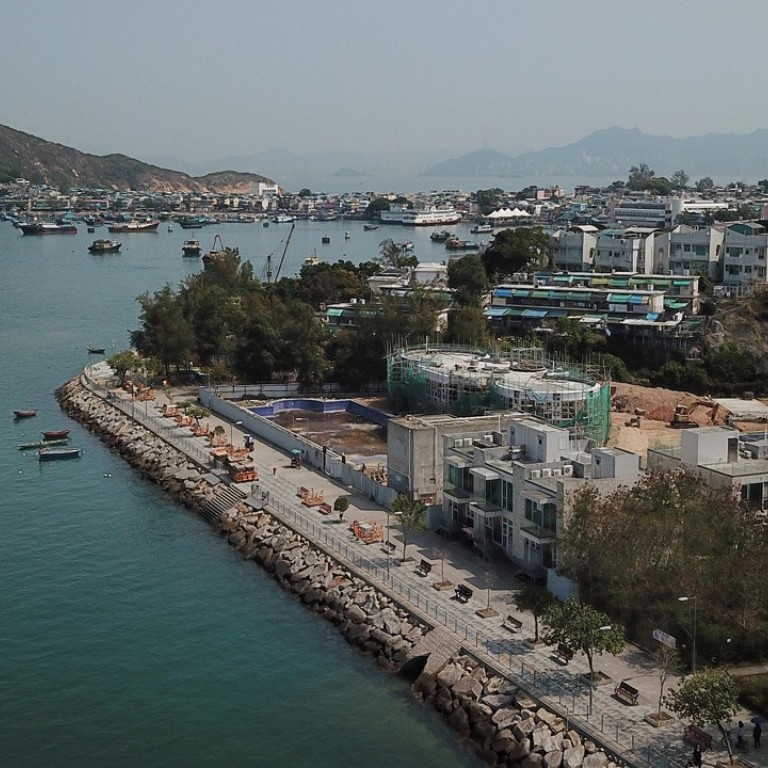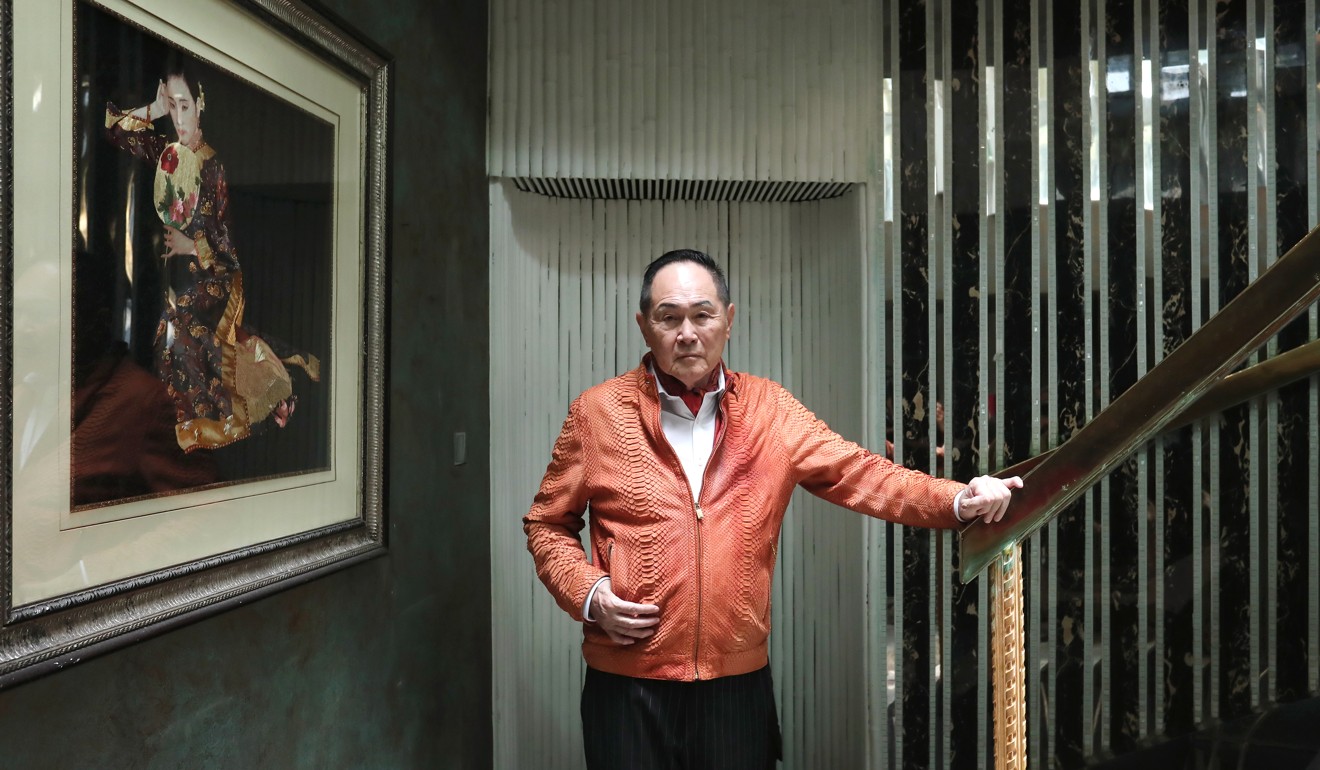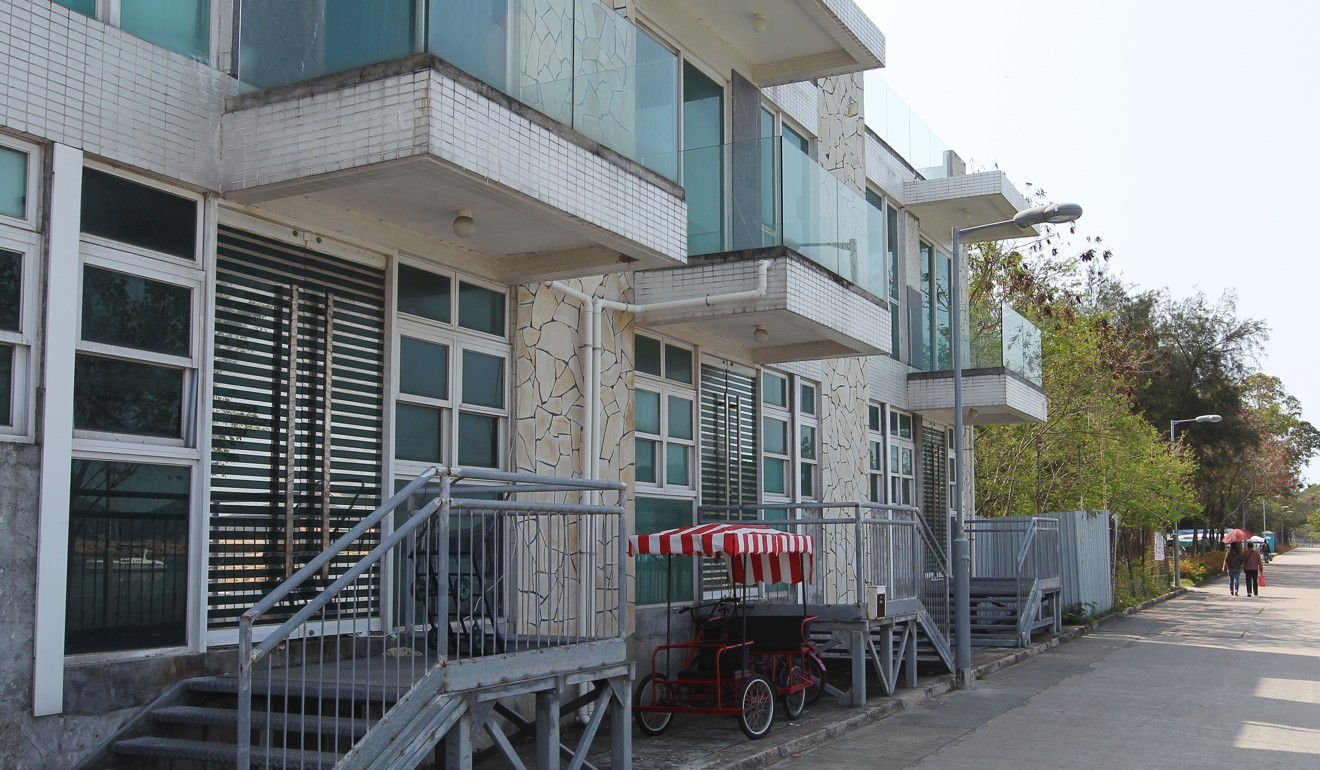
Billionaire Cecil Chao’s Cheung Chau villa development to go on rental market next year
Long-delayed luxury housing complex will not be up for sale, billionaire says, because ‘the slower you sell, usually the more profit you make’
The long-delayed luxury housing complex on Cheung Chau developed by flamboyant billionaire Cecil Chao Sze-tsung’s company – and named after the tycoon – could be up for rent as early as next year, but not for sale.
The 81-year-old property tycoon, chairman of Cheuk Nang Group, said New Villa Cecil, a low-density development on the outlying island’s Cheung Chau Sai Tai Road, was expected to be completed by the end of this year.
But, because of a positive property market outlook, Chao said he was “not in a hurry to sell” the 23 villas, which range in size from 1,450 sq ft to 12,000 sq ft.
“The interest rate now is affordable and prices of real estate are going high,” Chao said. “The slower you sell, usually the more profit you make.”
Cheuk Nang bought the Cheung Chau site in 2007, but the project was delayed by a dispute with its previous main contractor, Dao Kwei Kee Building and General Contractor.
Chao said the group would start leasing the villas early next year but had not finalised prices. He said he expected the rent to be “nothing comparable to Hong Kong Island, Kowloon and the New Territories”.

Theo Po Heung-wing, a spokesman for Cheung Chau-based Taion Property Agency, said local property prices increased by 20 per cent last year, driven mainly by people from outside the island looking for cheaper flats to rent or buy.
I think [the property market in] 2018 will be more steady than 2017
Po said he believed Chao’s villas would mainly attract company executives with housing subsidies from outside the island, as there was little local demand for such big houses. He added that no similar properties in Cheung Chau had gone on the market in recent years.
Chao said he was “not too worried” about a property market crash in the near future.
“I think [the property market in] 2018 will be more steady than 2017,” he said.
He said he did not expect the market to continue to inflate massively this year because prices already grew a lot last year. He added that the government had been trying to provide more land and the rising US interest rate would probably bring up the local rate by 0.5 to 1 per cent.
“It’s not a big deal but still could stabilise the quick increase [in prices],” he said.
He said Hong Kong’s property market was not in a bubble and a full-blown crash would be less likely, because not many buyers were “stretching themselves in borrowing”.

He added that the global trend of printing more money to stimulate the economy – notably in places like Japan, Europe and America – would probably continue to push asset prices up.
The city’s home prices increased by 14 per cent last year, according to the government’s private domestic price indices, which track overall trends in the property market.
Cecil Chao: Government needs more land for affordable homes
Figures from the Monetary Authority show that an average borrower buying a new flat takes out a mortgage for about half of the purchase price. In November last year, average borrowers of new flats spent about 35 per cent of their monthly income on mortgage payments. That was the highest level since 2015, but still much lower than the about 55 per cent shelled out on average in 2010, due to the authority’s tightening measures.
But the figures do not include loans from private financing firms or developers’ financing arms, which often cover up to 90 per cent of a new flat’s value without any income check. In May last year, Centaline Property Agency found that nearly 18 per cent of approved mortgage loans for new flats due to be delivered this year came from finance firms rather than banks.

